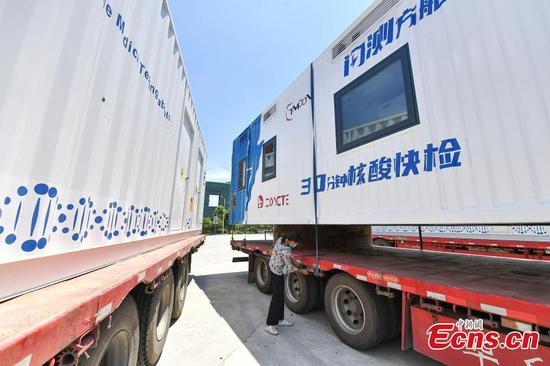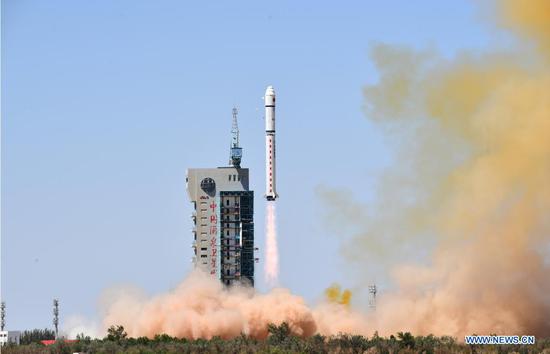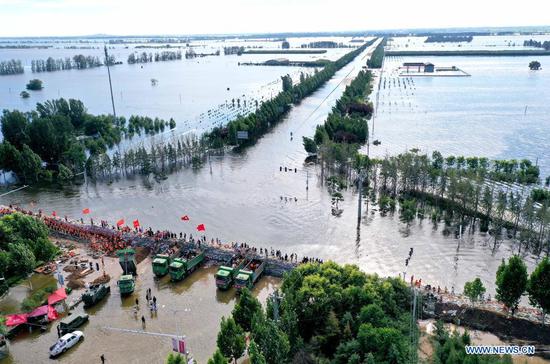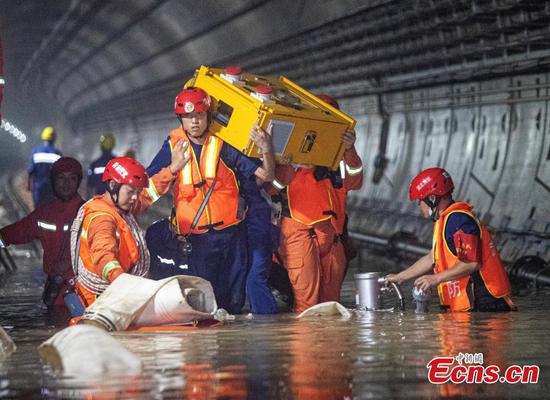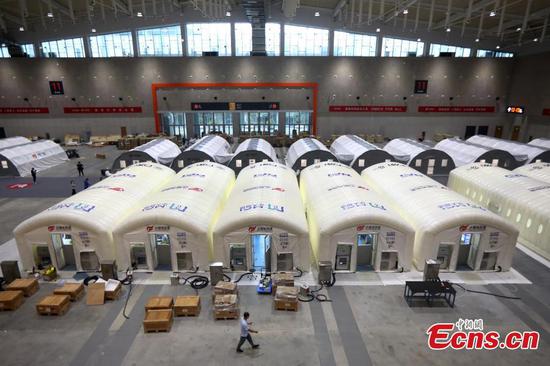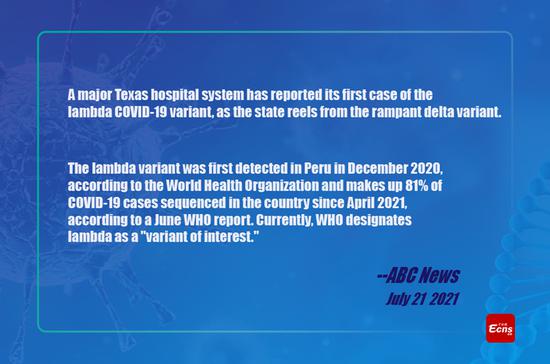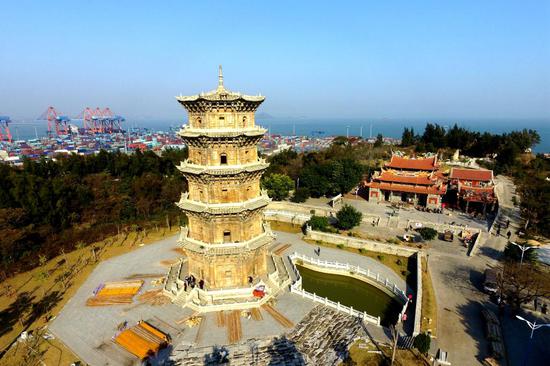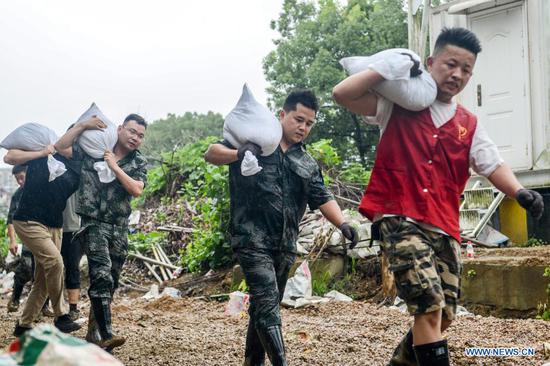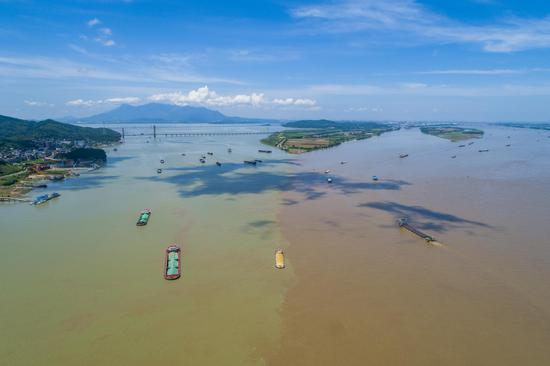Vulnerable cities
On July 26, at a videoconference in Beijing on fighting the floods and providing disaster relief, Premier Li Keqiang called for stronger early flood warnings. Contingency plans must be made to ensure public safety in subways and tunnels, Li said, adding that measures can be as harsh as necessary in order to avoid casualties.
In some southern cities that are hit more frequently by typhoons and rainstorms, local authorities have started building "smart tunnels" that can automatically initiate a water prevention process and shut tunnels automatically if the water reaches a certain level.
Guangzhou's Huangpu district, for example, has used such a system in 19 tunnels since July 2020.
With the help of electronic meters as well as ultrasound wave sensors, the system can monitor water levels in a tunnel in real-time, according to the local urban-rural development authority.
A water level of 10 centimeters triggers an emergency warning that involves flashing lights and the broadcast of a warning. If the water level in the tunnel reaches 27 cm, access is cut off and barrier gates close to stop water entering the tunnel.
Zhan Xuezhao, a tunnel engineer with a subsidiary of China Design Group, said such a system could be effective when the rain is not too heavy. However, in the face of floods as big as those that hit Zhengzhou, it's "very hard" to say whether such a system would be effective, Zhan said.
However, he said early warning systems are important to avoid heavy casualties and economic losses caused by extreme weather.
Compared with relying on a drainage system, it's more important to quickly shut down underground transportation facilities and issue warnings to the public, Zhan said. Authorities should also be flexible on working hours and suspending classes at schools.
Qin Hu, senior director of research with the Environmental Defense Fund's China program, said both at home and abroad awareness of the consequences of severe weather is inadequate. This is one of the major factors for the vulnerability of urban areas in extreme weather events.
Both city managers and the general public don't have enough knowledge to realize how vulnerable they can be during extreme weather patterns, he said. This results in a lack of motivation to ramp up investment to enhance emergency responses.
Qin said areas that seldom experience extreme weather events, such as inland cities like Zhengzhou, are less prepared to deal with extreme weather.
In such areas, urban managers and the public should attach higher importance to early warning information and make necessary preparations, he said.
A multipronged response mechanism should be established among different government bodies, including public security, meteorological, emergency, transportation and urban infrastructure management, Qin said, so "they can provide support in a comprehensive manner when extreme weather events occur".










